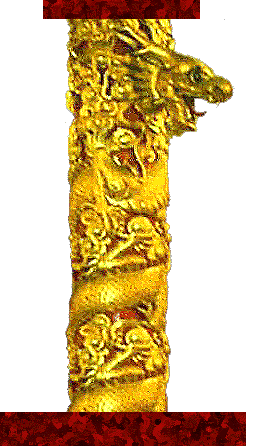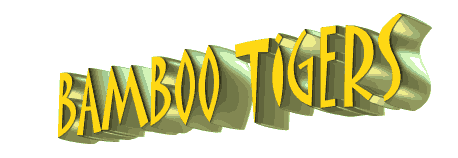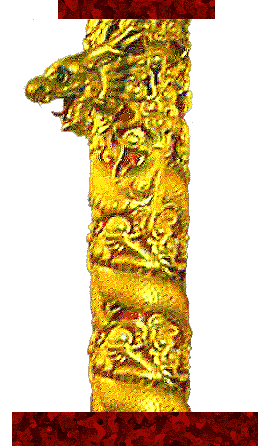| |
The first consideration confronting the Gang Task Force in conducting the Golden Dragon investigation was the same as that facing every law-enforcement team in the United States today. It is never enough to gather sufficient information to crack a case and make arrests. The evidence has got to be sufficient and convincing enough to secure convictions. And it has to survive scrutiny under laws and procedures that frequently stress technicalities rather than moral justice, even if guilt be proved beyond any shadow of reasonable doubt.
Public clamor be damned; technicalities reign. The investigation's results must not only be perfectly packaged for prosecution, but also must be handled with the utmost discretion and care. There is nothing more fragile these days than a so-called open-and-shut case. No matter how substantial the evidence may seem, it is really no more than spun glass in the hands of expert counsel.
Within days of the massacre, a robbery occurred which manifestly illustrates this point.
On September 12th, an Oriental youth wearing a stocking mask, gloves, a white sweat shirt with holes in it and gray pants, walked into a branch of the Wells Fargo Bank near Hunter's Point in San Francisco and demanded money. The teller took one look at the big automatic handgun pointed in her direction and parted with nearly $20,000.
The robber seemed suspiciously knowledgeable. Many such events produce very little cash because the teller pulls out wads of small bills, but this culprit knew enough to order that the money be taken from the bottom drawer. He knew where the big bucks were. Still, he didn't know quite enough because he also accepted the "bait" money.
Bait money is a roll of bills with a detonator secreted inside. The device is activated by an electric eye installed at the entrance of the bank. Shortly after exit, it explodes. Nowadays, it's somewhat more sophisticated than in 1977, and such irritants as tear gas are discharged. But at that time, indelible colored powder was used, harmless to the robber except that it exploded all over everything and left no doubt as to who had carried the loot from the bank.
Of course, as everyone knows who follows the newspapers or reads signs inside an up-to-date bank, the perpetrator's physical image had already been recorded while he stood in front of the teller. A photograph, however, could prove to be much less helpful for identification purposes--given a stocking mask that squashed human features to Cabbage-Doll proportions--than could a vividly hued powder sticking to everything in sight.
So the robber dashed out of the bank and jumped into a Volkswagen which he started to drive around the block. All of a sudden--poof!--the detonator in the roll of bills went off and scared him out of the car on the run, very well powdered. On foot, he sped into the nearby Burnett Elementary School and--again, poof!--disappeared. Fate had chosen for him the best possible escape route. No child who saw a brightly colored, stocking-masked figure racing along a school corridor would have mistaken him for anyone other than Ronald McDonald or Bozo the Clown.
A bank robbery automatically constituted a federal case at the time. Thus, the F.B.I. got involved. Then Larry Wong of the Gang Task Force took a look at the photograph. Not only did he recognize the suspect as Chinese, he knew who it was. Wong came up with a name. A police file revealed an address.
Federal agents rushed to the suspect's house, where his father greeted them at the door. A Chinese, the man spoke little English. Unprepared for such a possibility, the agents had neglected to bring along an interpreter. He admitted them, however, and investigators uncovered a sweat shirt with holes, a pair of gloves, and a gun--all matching descriptions given by witnesses inside and outside the bank. Also found were a VW ignition, a soldering iron and assorted paraphernalia useful for hot-wiring a car. Not only that, but the suspect turned out to be a former employee of that very bank and fit the physical description of the bandit.
He was arrested.
When Larry Wong identified the subject from the photograph, it was also revealed that the young man was an older Joe Boy. Hearts went aflutter in the Gang Task Force. Gossip on the streets of Chinatown hours after the Golden Dragon massacre had postulated that the Joe Boys were the most likely perpetrators of that tragic event.
The Force quite naturally figured this could be a wedge into the Golden Dragon. It was logical that the suspect might very well know something about it. The case now building against him in the bank robbery looked terrific. The Force immediately got in touch with the "feds," who were cooperative.
Evidence accumulated. The suspect held down a part-time janitorial job at Burnett School, into which he had disappeared, and would thus have known exactly where to hide to avoid discovery. He also had a reputation as a gambler, thus providing gambling debts as a possible motive for the desperate need of ready cash.
Then he made a smart move. He chose as his defender Doron Weinberg, an extremely gifted lawyer who occasionally represented the Chinese gang guys. Sitting down with this attorney, members of the Gang Task Force including John McKenna, and the District Attorney's representative on the Golden Dragon case, Hugh Levine, the suspect proceeded to play what he thought was a wily cat-and-mouse game predicated on things he hinted that he could tell about the Golden Dragon case.
But Weinberg, obviously convinced that they could beat the federal case, which was, in practical estimation, strictly circumstantial, advised his client to be quiet. The clever lawyer wanted to take a crack at getting the damning house search thrown out on a technicality. Levine, although on the opposite side of the fence, privately felt this was good counsel. By this time, Levine already had in his hands a couple of other things that might make prosecution possible even if the search were declared a foul.
In the course of the search, two driver's licenses had turned up, one in the suspect's real name, and the other in a false one. The same thumbprint, the same face, the same guy. That meant that the second was obtained perjuriously because an applicant had to sign a statement to the effect that he'd had no license under another name in the previous 10 years. The suspect had answered "no" to that written question. That was perjury, and Levine charged him with it. That way, another case got underway against him.
In addition, when Larry Wong named the suspect in the photograph as an older Joe Boy, he likewise pointed him out as a friend and associate of Wayne Yee. Leon Crouere, also of the Gang Task Force, found out that the youth had been collecting unemployment under his real name while working under a THIRD assumed name at the school. Another misdemeanor. He was charged with that one, too.
Not only that, but Wayne Yee's Chinese Youth Alternatives, for which the accused was a salaried staff worker, had hired him in May under his real name and again in August under the false name shown on the bogus driver's license.
Meanwhile, the federals had begun to lose heart in the bank robbery case. They quite frankly admitted they didn't think they would have enough evidence if Weinberg managed to have the house search thrown out, which it looked like he would. Levine was astonished. He felt personally that they could have gotten a conviction, but, as a realist, he recognized that the "feds" could pick and choose among bank robbery cases since they got them all anyway. This one was minor-league. Much bigger ones were always looming on their horizon.
There came a point when it looked like they were going to drop it. District Attorney Freitas asked Levine if the city should take on the case. Levine strongly advised him not to do so, reasoning soundly that it would be tough to win the case after the U.S. Attorney had decreed that there was insufficient evidence. Prosecution might arouse charges of harassment, for one thing, and Golden Dragon hysteria already gripped the Chinese community.
As it happened, the search was indeed thrown out. Agreeing with Weinberg, a federal judge ruled in late December 1977 that without a search warrant and without an interpreter to make their purpose clear, the agents had made a fatal mistake. As a result, Levine's potential cases against the suspect were severely tainted, as he had predicted to Freitas, because the second driver's license derived from the illegal search.
The suspect skated. With him, the Force feared then, may have gone the first leads in the Golden Dragon investigation. This was a defeat, they thought. It was not. Time would show this whole bank robbery business as in no way related to the greater affair. Still, they could not be blamed for being disturbed under the circumstances,
They were not alone in feeling a certain irritation.
| |
|









